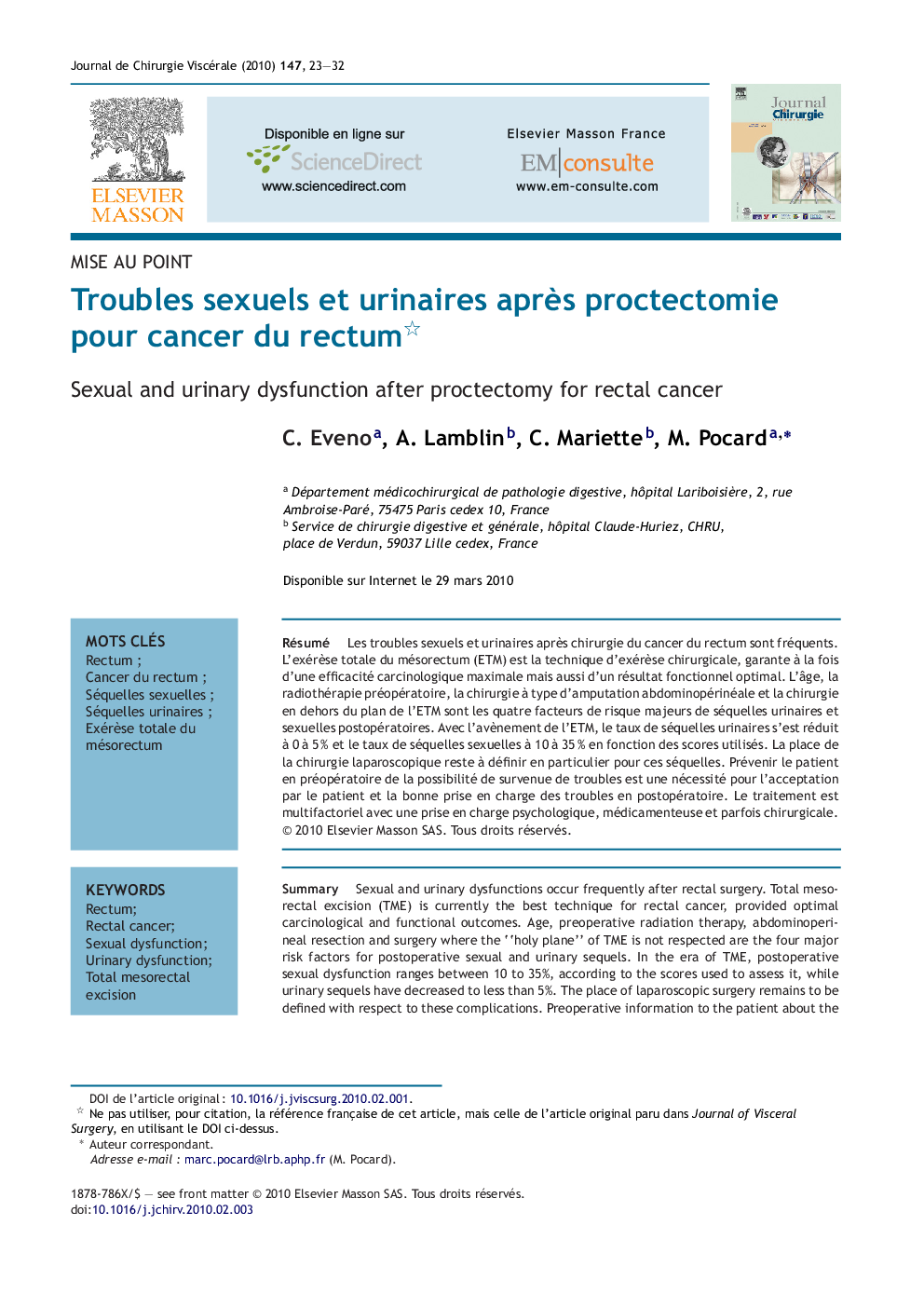| Article ID | Journal | Published Year | Pages | File Type |
|---|---|---|---|---|
| 3312394 | Journal de Chirurgie Viscérale | 2010 | 10 Pages |
Abstract
Sexual and urinary dysfunctions occur frequently after rectal surgery. Total mesorectal excision (TME) is currently the best technique for rectal cancer, provided optimal carcinological and functional outcomes. Age, preoperative radiation therapy, abdominoperineal resection and surgery where the “holy plane” of TME is not respected are the four major risk factors for postoperative sexual and urinary sequels. In the era of TME, postoperative sexual dysfunction ranges between 10 to 35%, according to the scores used to assess it, while urinary sequels have decreased to less than 5%. The place of laparoscopic surgery remains to be defined with respect to these complications. Preoperative information to the patient about the possibility of such disorders is necessary not only for patient acceptation but also to help correctly manage the problem postoperatively. Management is multifactorial, and includes psychological, pharmacological, and sometimes surgical therapy.
Keywords
Related Topics
Health Sciences
Medicine and Dentistry
Gastroenterology
Authors
C. Eveno, A. Lamblin, C. Mariette, M. Pocard,
